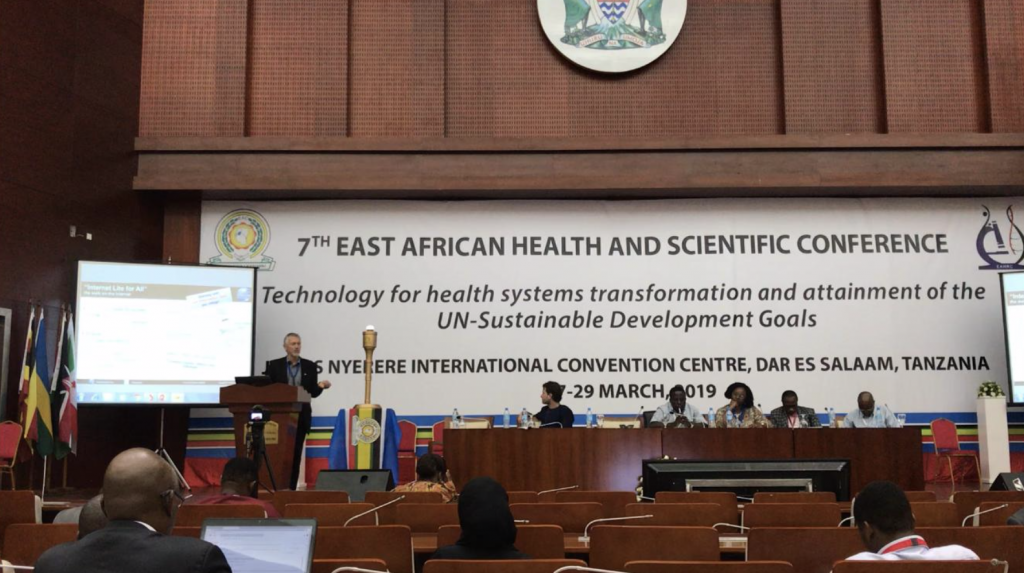
Through it’s 7th EAC Health & Scientific Conference (EACHSC) took place on 27-29Mar2019 in Dar es Salaam, Tanzania, Basic Internet Foundation was strongly participating with Bernard and Felix as part of the organising committee, Flora as participant, and Christine and Josef as presenters.
Technology for Health System Transformation and attainment of the UN-Sustainable Development Goals were the main focus of the conference with tremendous participation of decision makers such like the Hon. Ummy Mwalimu, minister of health, and Prof. Palamagamba Kabudi, minister of foreign affairs of Tanzania and their counterparts from many other East African Council countries.
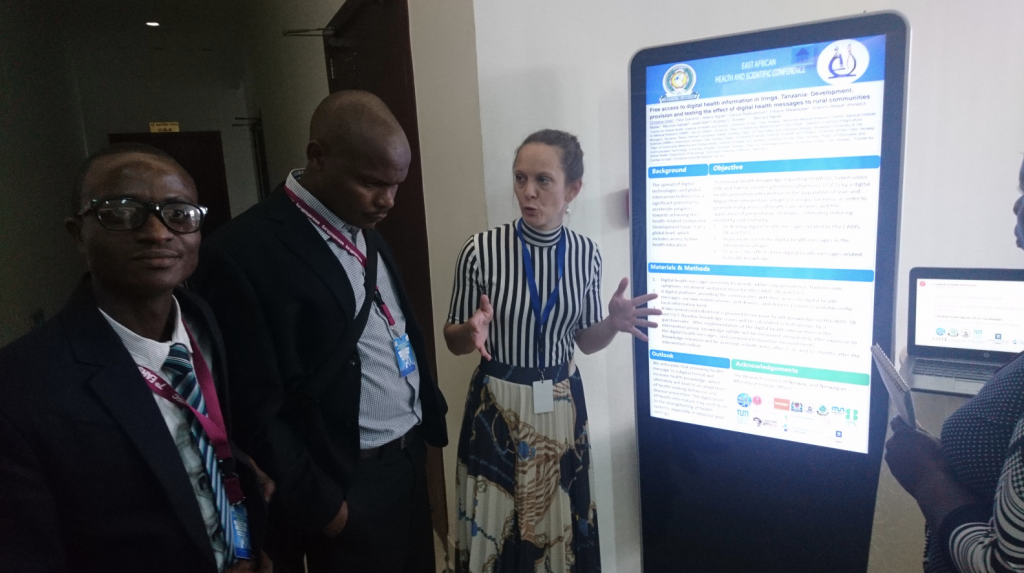
Josef had a talk on «Providing Digital Health - a Question of Sustainability» as part of the Symposium «Role of the Government in providing a robust enabling ecosystem for scaling uptake and utilisation of technologies in health: leadership, policies, regulation, and enabling environment for digital technology and solutions in health», where Christine had an interactive talk on «Free access to digital health information in Iringa, Tanzania: Development, provision and testing the effect of digital health messages to rural communities». The impact of digital health and the focus on digital health promotion, including the provision through information spots, both received excellent attention.
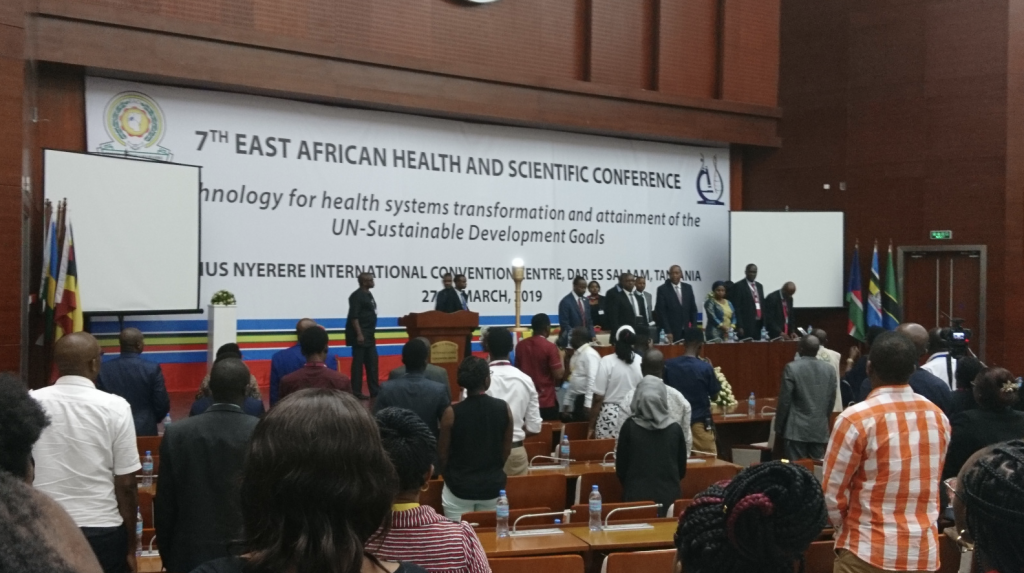
The conference was effectively leaded through its precious participants, and based on the Keynotes, Parallel Sessions, and Symposia Presentations resulting in 9 central recommendations for health development. The recommendations, are remarkably future-oriented, with focus on the transition to digital health as well as the community involvement.
The recommendations were both forward looking and clearly identifying a) the opportunities of digital health and b) the importance of involving the local communities. Below are the conference recommendations are given in bold, with our comments reflecting the potential of free access to digital health information for all.
1. Expedite development and application of innovative approaches (such as the cross border health unit model) to cross border health, disease outbreak, preparedness and response in border areas while adding values to the national health system.
As the presentations have demonstrated, the involvement of the local community and the feedback from the local communities is essential for a timely response to disease outbreak. Involvement of the community is also key preparedness. Communities in the border areas are often hamper from bad access to Internet, thus attention should be given on how to establish e.g. health information spots to enhance preparedness, and contribute to a faster reporting and timely response.
2. Promote establishment of national bio banks and data repositories among the partner states and develop a regional policy for guiding the use and security of the repositories
3. Partner states should to participate in development, evaluation and formalization of emerging technologies intended for promoting digital health.
The value chain for promoting digital health includes the local communities, the district and regional authorities and well as the link to the national and EAC health inventories. Partners should ensure that digital health promotion involves all actors, and that a missing link does not interrupt the value chain. With respect to the local communities, novel technologies such as health information spots should be considered to reach everyone in the local society, and enhance the capacity of everyone to understand the power of digital health.
4. Harmonisation regional IP policy to guide development and uptake of digital health technologies
Given the efficiency and effectiveness of digital health, national and regional IP policies should be focus on “digital first” when developing and distribution health promotion and health technologies. At the same time the information handling policies need to be strengthened to ensure that health data contribute to the prosperity of each country and the EAC, rather than becoming the basis for profit of multinational IT companies.
5. Strengthening platform for digital inclusion where communities have full access to information on surveillance and disease management
Platforms for digital inclusion with full access to information are the basis of sustainable growth and prosperity in each community. Digital health is further a key element for reaching SDG 3, and a catalyst for the majority of the SDGs. Policies should be established ensuring free access to information for all, and encourage other ministries to join forces for full and free access to non-profit information. Governmental collaboration should be established amongst the ministries of e.g. education, work, communication, and regional development, to establish the information access.
6. EAC member states should fast track the adoption and implementation of Evidence Based Surveillance and enhance mechanisms of sharing information and best practice
Evidence-based surveillance and enhanced mechanisms of sharing information and best practice need to include everyone in the society through the local communities. Full and free access to non-profit content is essential, and can be achieved through Information Spots in each community, in addition to zero-rated content on mobile networks.
7. Enhance coordination and collaboration between East African countries and international Institutions involved in diseases control including African CDC
8. EA member states to promote the involvement of frontline healthcare workers in the design of digital health tools to ensure readiness, for easy adoption, decreasing cost, and increased sustainability.
Involvement of frontline healthcare workers in digital health tools is core for adoption and acceptance of digital health tools. Key performance indicators (KPIs) and best practice models should be established, as well as the nation-wide roll-out of these tools, ensuring free access in each village.
9. Develop and adopt innovative Regional PPP policies and models specific to digital health Technologies.
The core of PPP is the opportunity for private partners to ensure profitable business in the future. Ensuring policies supporting digital inclusion and digital health in each village will create the basis for digital inclusion and societal empowerment, leading to business opportunities for the private partners. As an example, it is currently not viable for mobile operators to cover each region with mobile broadband. Ensuring that every village gets at least one information spot will establish a measure for digital inclusion, and enables mobile operators to advance their mobile broadband roll-out.
The participation in the EACHSC was a) an excellent opportunity to introduce our vision in a large scope, b) network building with African players eg. PEN Tanzania, and c) establishing of clear support for the view on Internet Lite for All and access to information considered as straight forward channel towards the society involvement and end users informing on digital health.
Though understanding of Internet Lite for All is not straightforward for everyone, the discussions unanimously concluded that Digital Health is the basis for digital inclusion, reaching everyone in the society, and for societal empowerment.
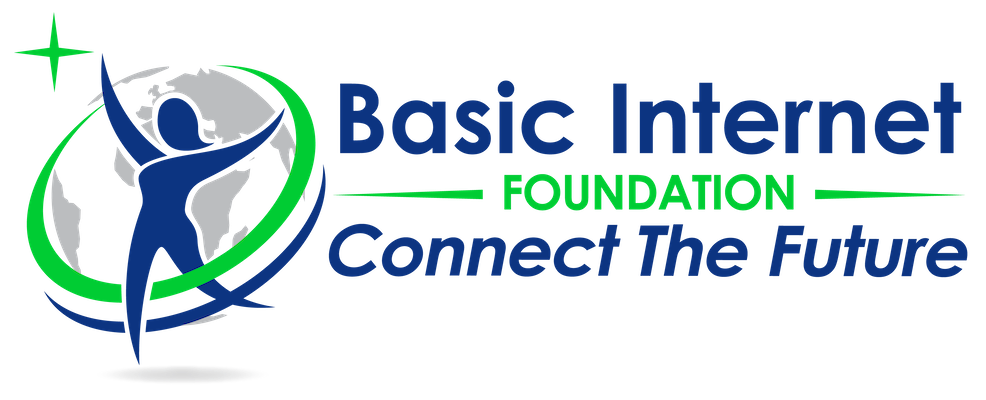
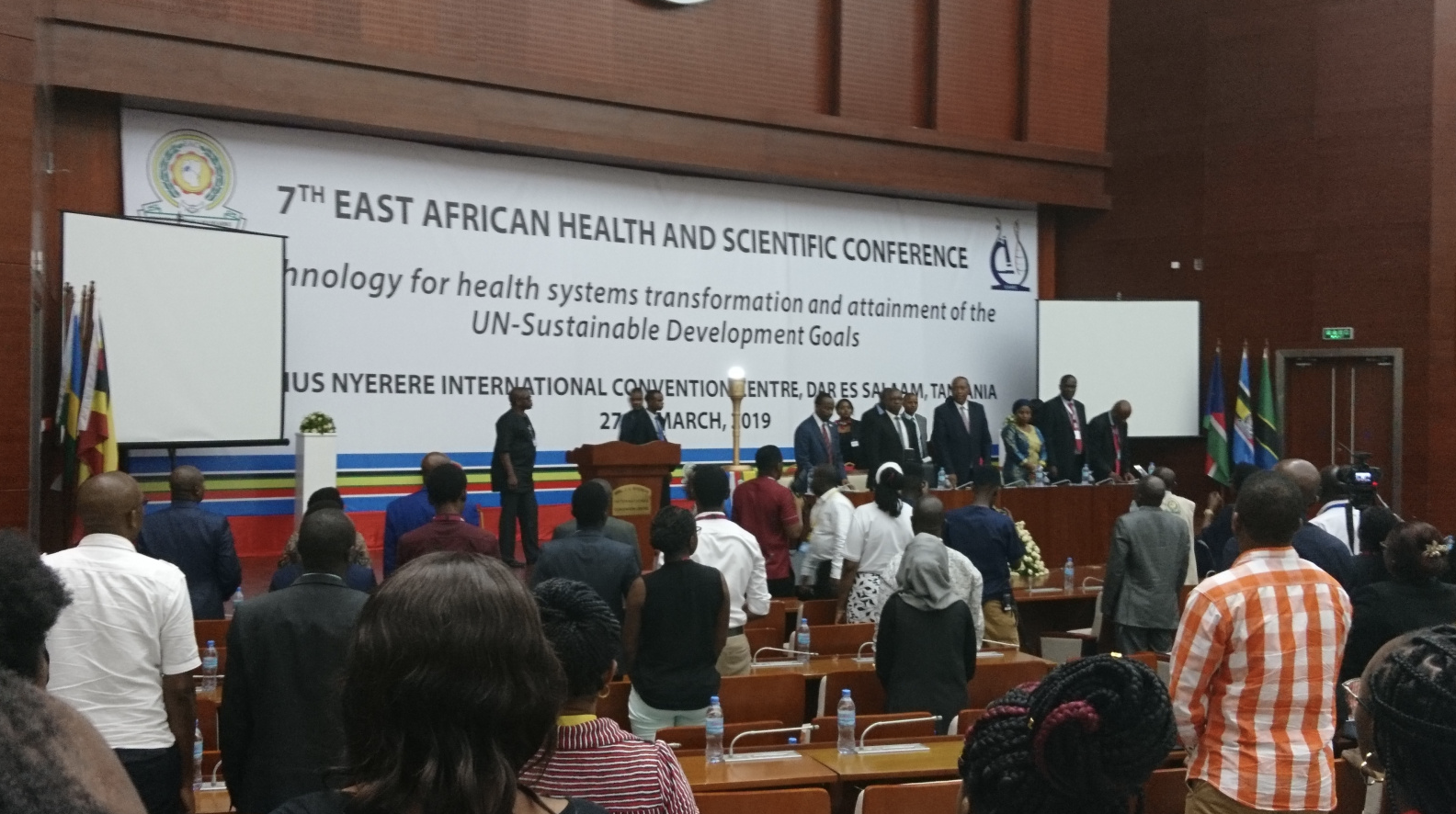
Recent Comments